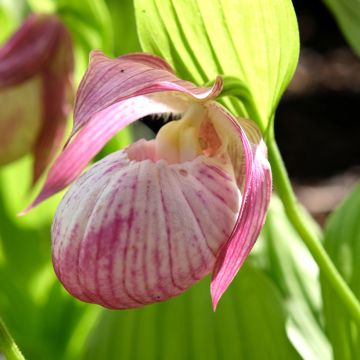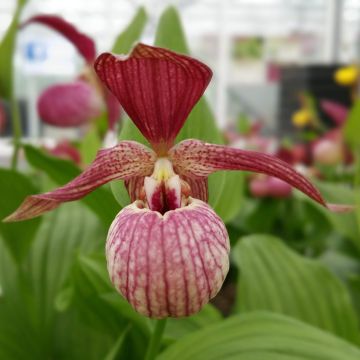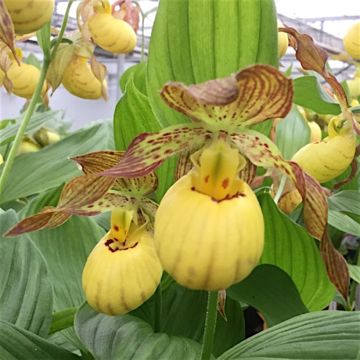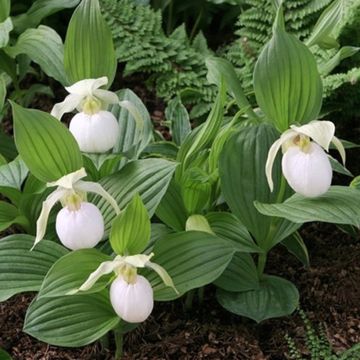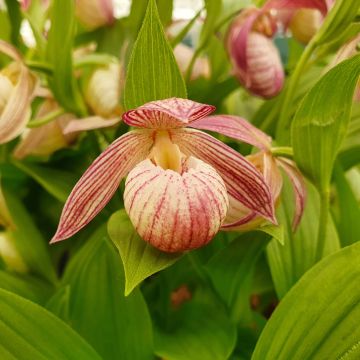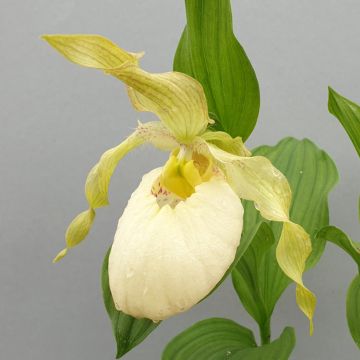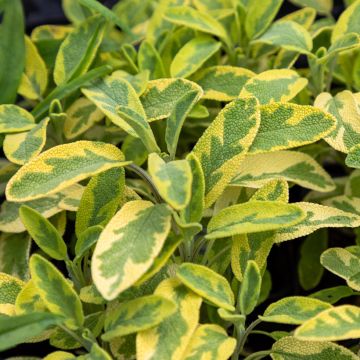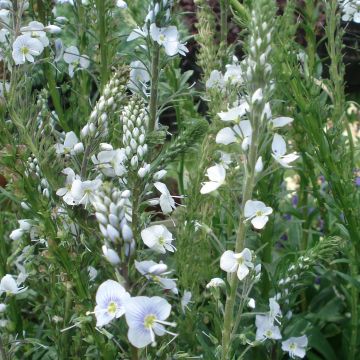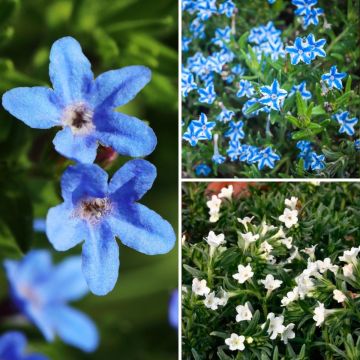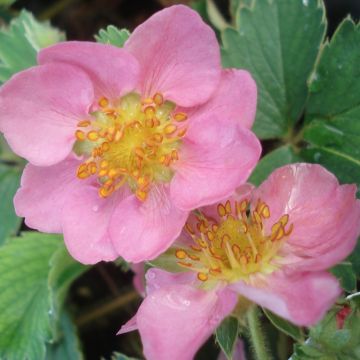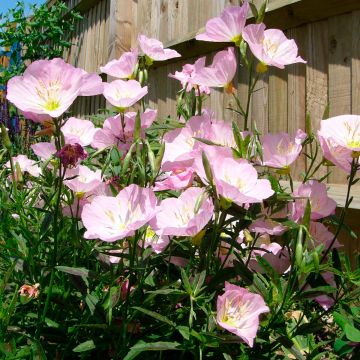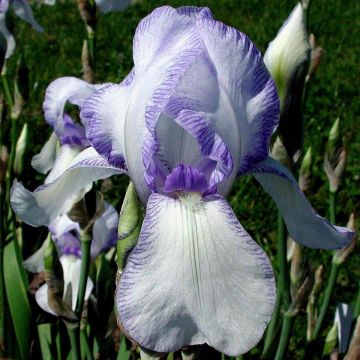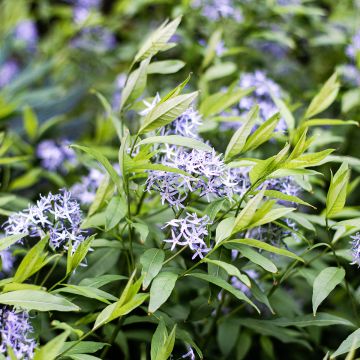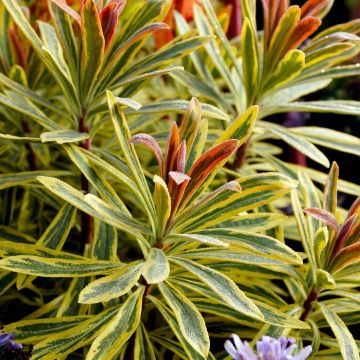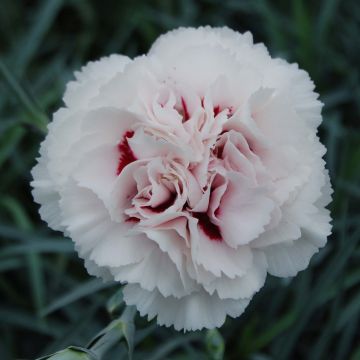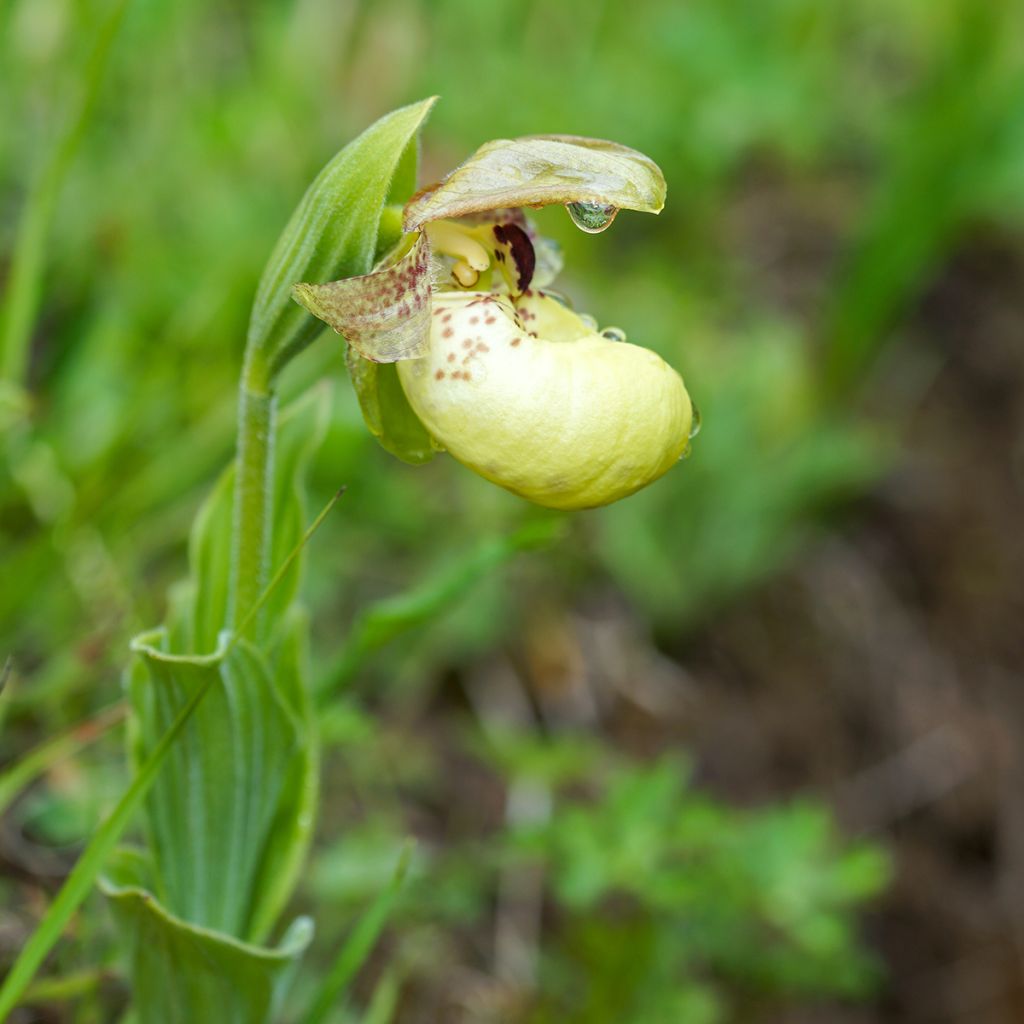

Cypripedium flavum
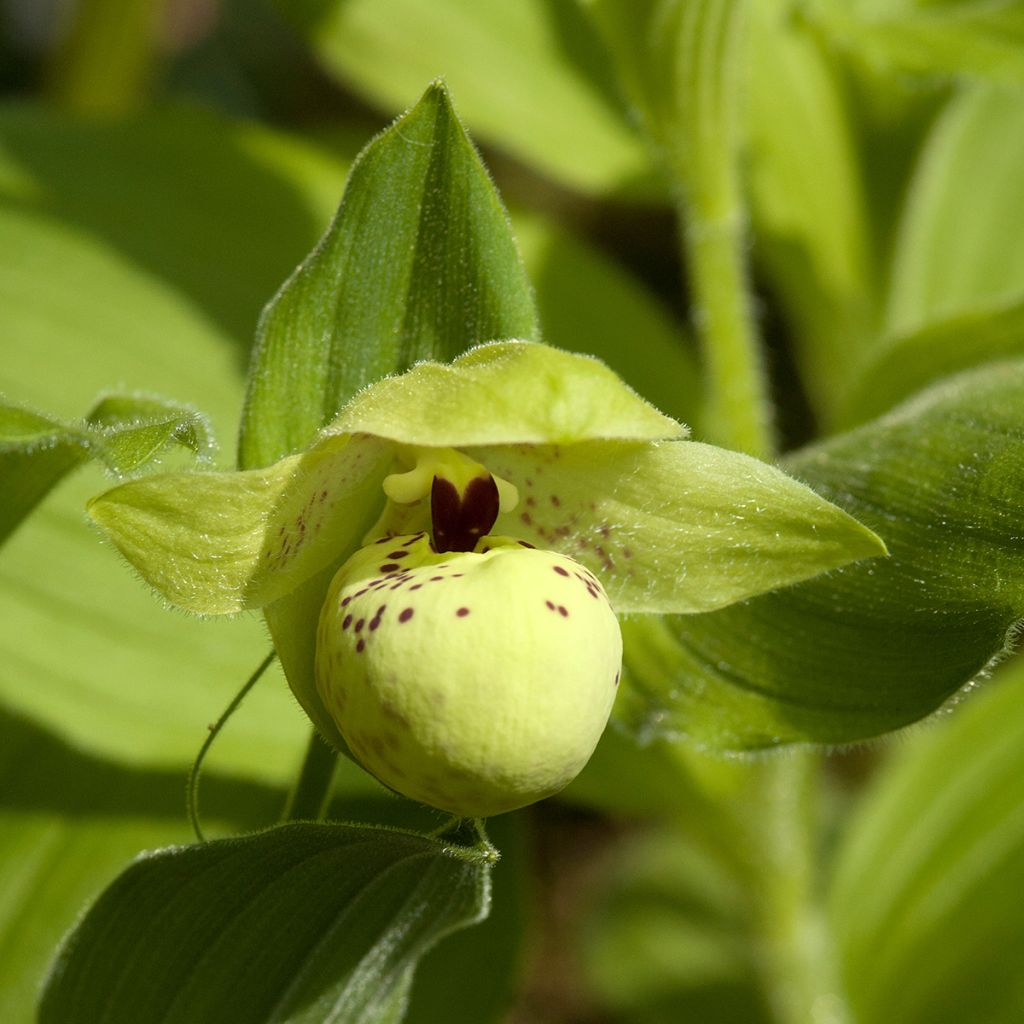

Cypripedium flavum
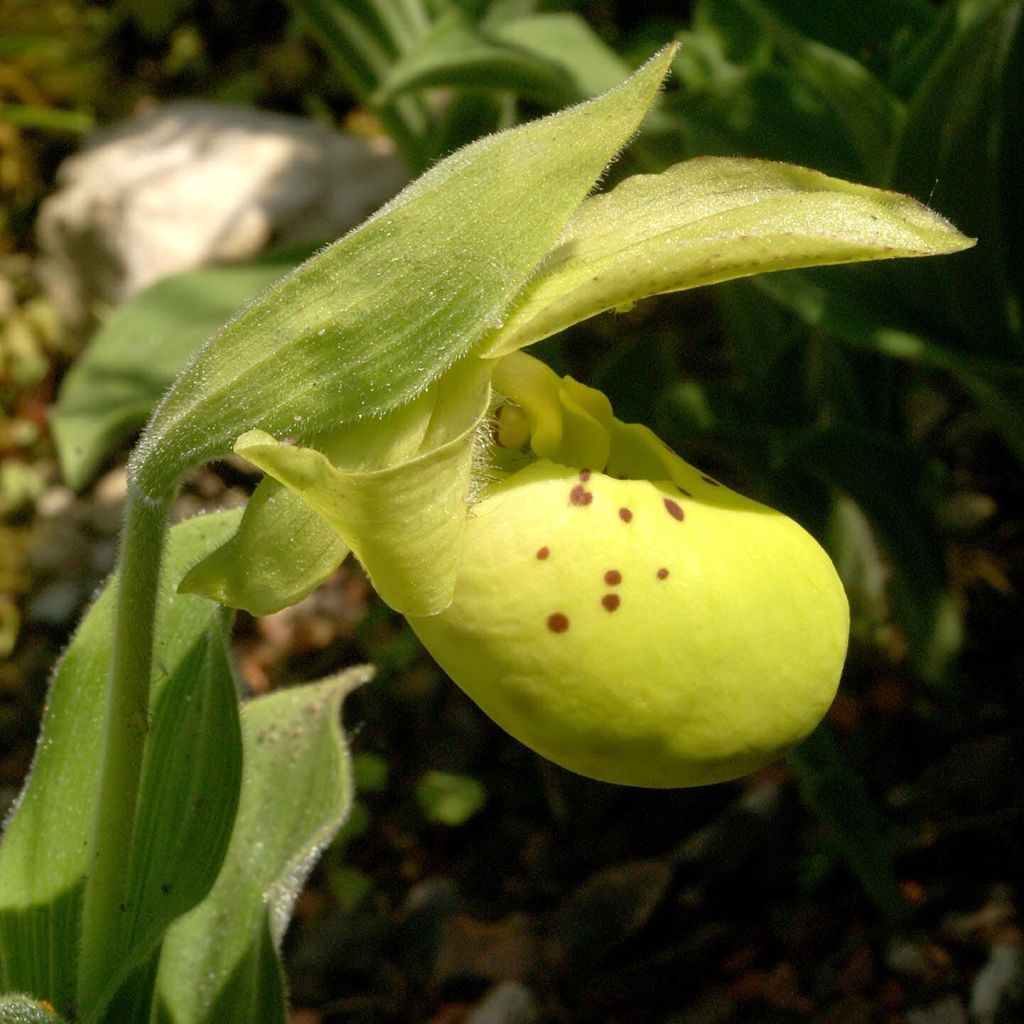

Cypripedium flavum
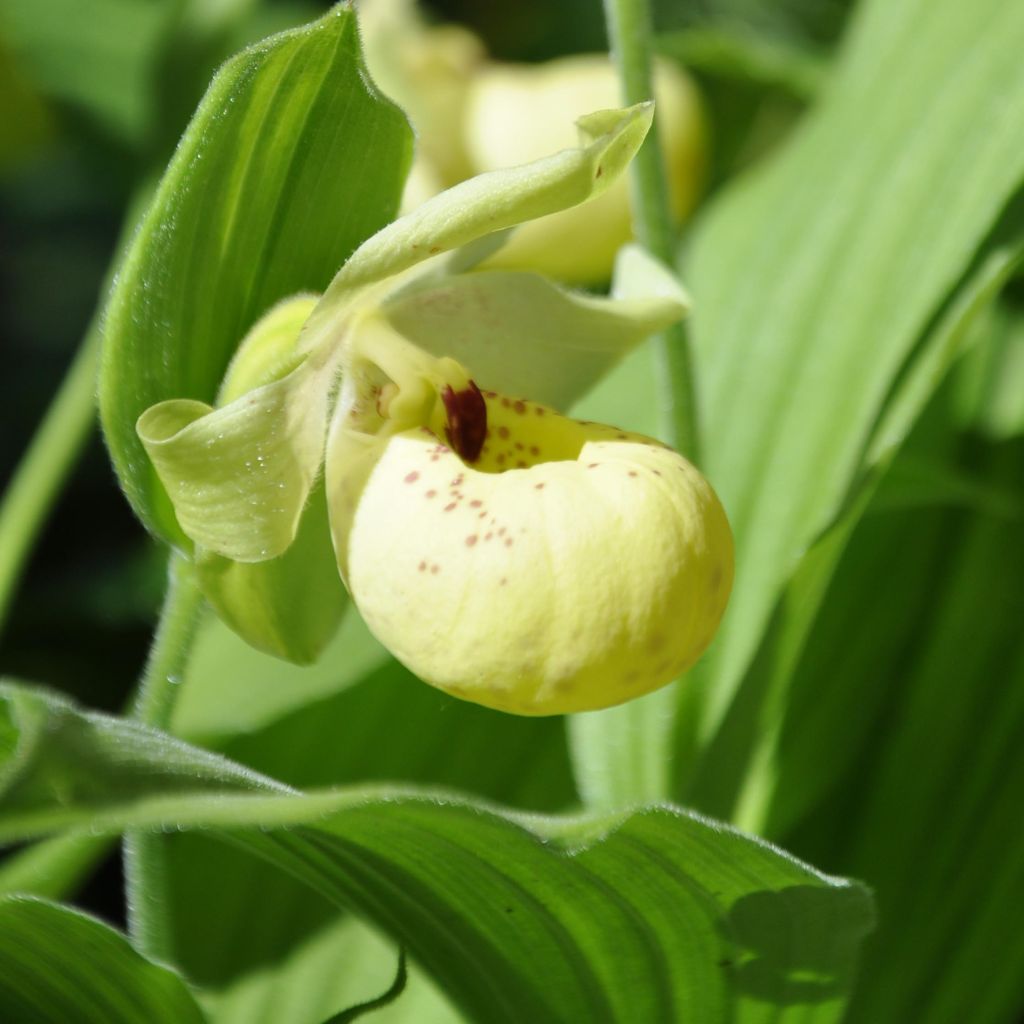

Cypripedium flavum
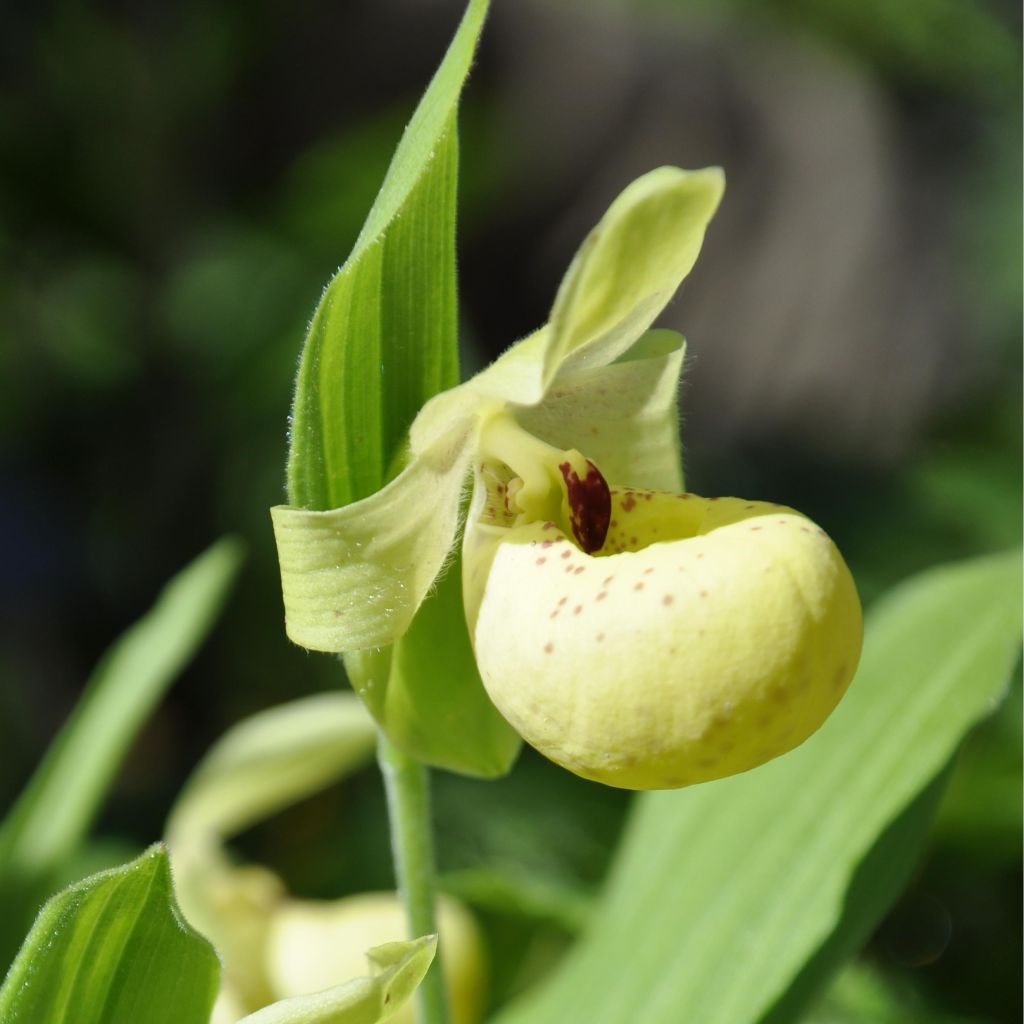

Cypripedium flavum
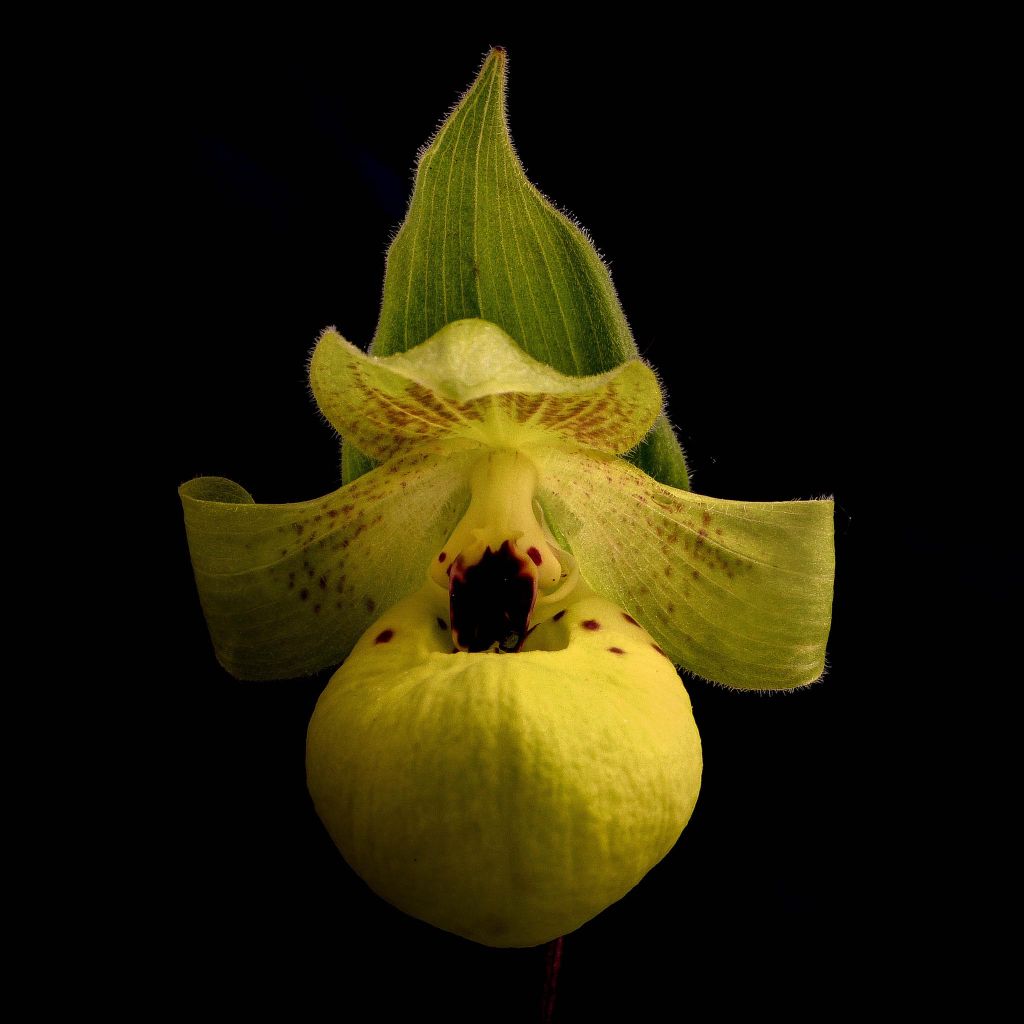

Cypripedium flavum
Cypripedium flavum
Cypripedium flavum
Lady's Slipper Orchid
Water arrived very small, only one small leaf: expensive for pruning of the young plant, and a bit disappointing as a gift for the family! Another orchid of the same type arrived much more beautiful (kristi lyn) in the same order, too bad it's not the same for this one.
Oriane, 16/05/2023
This plant carries a 12 months recovery warranty
More information
We guarantee the quality of our plants for a full growing cycle, and will replace at our expense any plant that fails to recover under normal climatic and planting conditions.
From €5.90 for pickup delivery and €6.90 for home delivery
Express home delivery from €8.90.
Does this plant fit my garden?
Set up your Plantfit profile →
Description
The alternate Cypripedium flavum, close to C. reginae, is a garden orchid whose flowers, quite variable in their shades, are made up of pale pink to yellow sepals, and a yellow straw to cream lip. Quite rare, although it is vigorous, spectacular and very hardy, it spreads easily in bright green and fresh clumps. Where it thrives, in semi-shade, in moist and rather calcareous soil, it can form large colonies. Like many orchids, it is very easy to cultivate provided that its habitat is meticulously recreated.
The alternate Cypripedium flavum is native to high mountain valleys in western China. It develops there in the humus of valleys and rocky slopes, on a substrate rich in travertine, a limestone rock.
This Venus slipper forms, from spring onwards, a clump of large bright green leaves, oval to elliptical, with very pronounced parallel veins. In nature, it can reach up to 60cm (24in) in height. In our climates, it will reach 40 to 50cm (16 to 20in) in height. Flowering occurs in early summer, it is sometimes absent in certain years, and occurs when the plant is at least 4 or 5 years old. The solid and robust floral stem, measuring between 30 and 40cm (12 and 16in) in height, develops directly from a very large cylindrical rhizome. It is equipped with leaves up to the top. Alternating and distributed along these tall stems, one or two flowers appear, rarely 3 or 4. It has been observed that flowering is more generous when the soil is rich in calcium carbonate. They have the characteristic shape of Cypripedium flowers, and measure 4 to 6cm (2in) in diameter. They are quite variable, more or less yellow and more or less speckled with purple brown. They are composed of cream or pink sepals and petals, spotted with brown, dominating an imposing 'slipper' lip, very swollen, pale yellow to white depending on the plants. Note that the entire vegetation is covered with a fine down that can be allergenic and irritating to the skin. These urticating hairs are hosts to a fungus. During winter, the foliage disappears and the plant persists in the form of a rhizome.
The alternate Cypripedium flavum is demanding in terms of its habitat, but if the conditions are met, it will be a real attraction for the cool areas of the garden and the pride of the gardener who has managed to acclimatize it. It can be installed in clear undergrowth or at the edge of undergrowth, on the edge of a water feature, in semi-shade, in a carefully prepared substrate. It will associate well with ferns, hostas, and Rodgersias.
When you receive your orchids, handle them with care: these plants produce few roots and are delicate!
Report an error about the product description
Cypripedium flavum in pictures
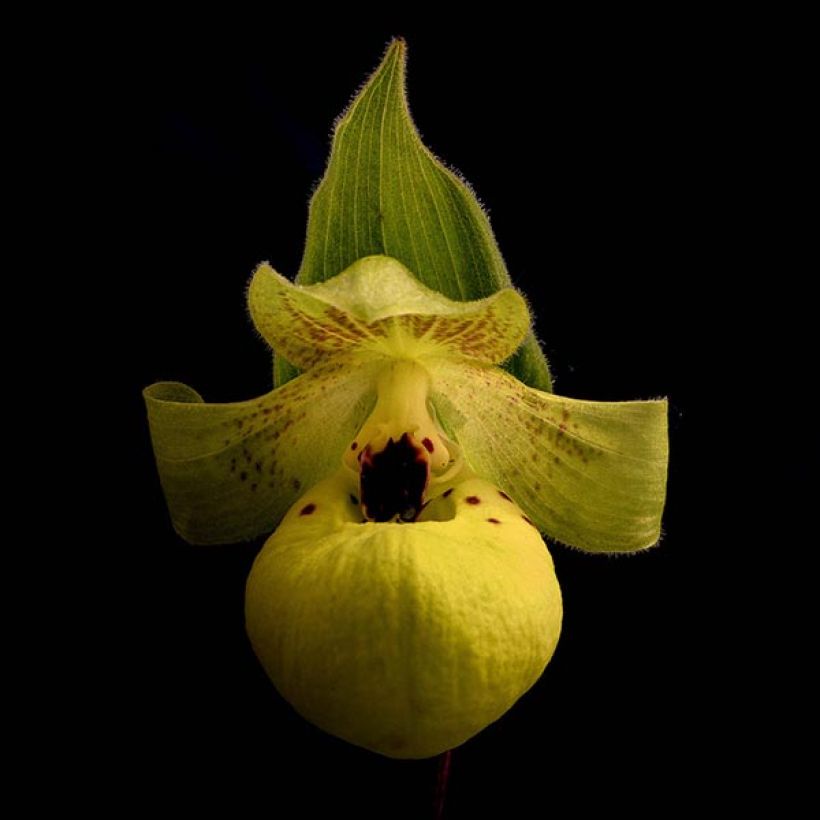

Flowering
Foliage
Plant habit
Botanical data
Cypripedium
flavum
Orchidaceae
Lady's Slipper Orchid
China
Other Cypripedium
Planting and care
Cypripedium flavum prefers moist to wet, neutral soils, but also tolerates slightly acidic soils. Cypripediums are the hardiest perennial orchids, not fearing temperatures below -30°C (1°F) (-40°C (1°F) under a blanket of snow). They thrive in soils low in organic matter and well-drained. If your soil is very compact or clayey, it is necessary to create a planting pocket. Dig a hole of about 40cm (16in) for each plant, cover the bottom with a layer of drainage (lava rock or fine gravel), and fill it with the following mixture: 50% sand, perlite, or lava rock, the other half composed of garden soil, even limestone, mixed with finely ground pine bark, compost made from leaf compost or coconut fibres. Cypripedium rhizomes should not dry out in summer and should not be submerged in winter. In the garden, place Cypripedium flavum in a cool, shaded or semi-shaded spot. Avoid direct sunlight, especially during the hottest hours of the day.
Planting period
Intended location
Care
-
, onOrder confirmed
Reply from on Promesse de fleurs
Spring flowering perennials
Haven't found what you were looking for?
Hardiness is the lowest winter temperature a plant can endure without suffering serious damage or even dying. However, hardiness is affected by location (a sheltered area, such as a patio), protection (winter cover) and soil type (hardiness is improved by well-drained soil).

Photo Sharing Terms & Conditions
In order to encourage gardeners to interact and share their experiences, Promesse de fleurs offers various media enabling content to be uploaded onto its Site - in particular via the ‘Photo sharing’ module.
The User agrees to refrain from:
- Posting any content that is illegal, prejudicial, insulting, racist, inciteful to hatred, revisionist, contrary to public decency, that infringes on privacy or on the privacy rights of third parties, in particular the publicity rights of persons and goods, intellectual property rights, or the right to privacy.
- Submitting content on behalf of a third party;
- Impersonate the identity of a third party and/or publish any personal information about a third party;
In general, the User undertakes to refrain from any unethical behaviour.
All Content (in particular text, comments, files, images, photos, videos, creative works, etc.), which may be subject to property or intellectual property rights, image or other private rights, shall remain the property of the User, subject to the limited rights granted by the terms of the licence granted by Promesse de fleurs as stated below. Users are at liberty to publish or not to publish such Content on the Site, notably via the ‘Photo Sharing’ facility, and accept that this Content shall be made public and freely accessible, notably on the Internet.
Users further acknowledge, undertake to have ,and guarantee that they hold all necessary rights and permissions to publish such material on the Site, in particular with regard to the legislation in force pertaining to any privacy, property, intellectual property, image, or contractual rights, or rights of any other nature. By publishing such Content on the Site, Users acknowledge accepting full liability as publishers of the Content within the meaning of the law, and grant Promesse de fleurs, free of charge, an inclusive, worldwide licence for the said Content for the entire duration of its publication, including all reproduction, representation, up/downloading, displaying, performing, transmission, and storage rights.
Users also grant permission for their name to be linked to the Content and accept that this link may not always be made available.
By engaging in posting material, Users consent to their Content becoming automatically accessible on the Internet, in particular on other sites and/or blogs and/or web pages of the Promesse de fleurs site, including in particular social pages and the Promesse de fleurs catalogue.
Users may secure the removal of entrusted content free of charge by issuing a simple request via our contact form.
The flowering period indicated on our website applies to countries and regions located in USDA zone 8 (France, the United Kingdom, Ireland, the Netherlands, etc.)
It will vary according to where you live:
- In zones 9 to 10 (Italy, Spain, Greece, etc.), flowering will occur about 2 to 4 weeks earlier.
- In zones 6 to 7 (Germany, Poland, Slovenia, and lower mountainous regions), flowering will be delayed by 2 to 3 weeks.
- In zone 5 (Central Europe, Scandinavia), blooming will be delayed by 3 to 5 weeks.
In temperate climates, pruning of spring-flowering shrubs (forsythia, spireas, etc.) should be done just after flowering.
Pruning of summer-flowering shrubs (Indian Lilac, Perovskia, etc.) can be done in winter or spring.
In cold regions as well as with frost-sensitive plants, avoid pruning too early when severe frosts may still occur.
The planting period indicated on our website applies to countries and regions located in USDA zone 8 (France, United Kingdom, Ireland, Netherlands).
It will vary according to where you live:
- In Mediterranean zones (Marseille, Madrid, Milan, etc.), autumn and winter are the best planting periods.
- In continental zones (Strasbourg, Munich, Vienna, etc.), delay planting by 2 to 3 weeks in spring and bring it forward by 2 to 4 weeks in autumn.
- In mountainous regions (the Alps, Pyrenees, Carpathians, etc.), it is best to plant in late spring (May-June) or late summer (August-September).
The harvesting period indicated on our website applies to countries and regions in USDA zone 8 (France, England, Ireland, the Netherlands).
In colder areas (Scandinavia, Poland, Austria...) fruit and vegetable harvests are likely to be delayed by 3-4 weeks.
In warmer areas (Italy, Spain, Greece, etc.), harvesting will probably take place earlier, depending on weather conditions.
The sowing periods indicated on our website apply to countries and regions within USDA Zone 8 (France, UK, Ireland, Netherlands).
In colder areas (Scandinavia, Poland, Austria...), delay any outdoor sowing by 3-4 weeks, or sow under glass.
In warmer climes (Italy, Spain, Greece, etc.), bring outdoor sowing forward by a few weeks.

































